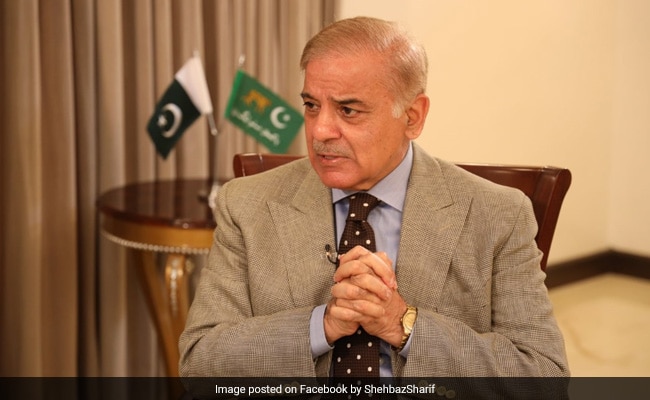Pakistan’s Prime Minister Speaks Out Amidst Diplomatic Tensions Following the Tragic Incident
In a stark response to the recent terror attack in Jammu and Kashmir’s Pahalgam that resulted in the deaths of 26 individuals, including a Nepalese national, Pakistan’s Prime Minister Shehbaz Sharif has declared his country’s readiness for a neutral investigation. The attack is one of the most devastating since the revocation of Article 370 in 2019, which gave special status to Jammu and Kashmir.
According to reports, the The Resistance Front (TRF), an affiliate of the Pakistan-based terror group Lashkar-e-Taiba, has claimed responsibility for the brutal assault. Sharif’s comments come at a time when allegations against Pakistan regarding its harboring of terrorist elements have intensified. As Prime Minister Sharif addressed a graduation ceremony at the Pakistan Military Academy in Kakhul, he expressed that Pakistan is open to participating in any credible investigation that seeks to unveil the truth behind the Pahalgam attack and put an end to the lingering blame game surrounding terrorism in the region.
The Prime Minister stated, “The recent tragedy in Pahalgam is yet another example of this perpetual blame game, which must come to a grinding halt.” He underscored Pakistan’s commitment to being a responsible player in the global fight against terrorism, asserting that Pakistan’s armed forces are prepared to defend the nation’s sovereignty against any threats.
The Aftermath and Diplomatic Consequences
Following the Pahalgam incident, the Cabinet Committee on Security (CCS) in India, chaired by Prime Minister Narendra Modi, convened to strategize India’s response, emphasizing that Pakistan be held accountable for its alleged support of cross-border terrorism. The committee’s decisions included significant diplomatic actions, reflecting escalating tensions between the two neighboring nations.
Among the immediate measures announced by India’s Foreign Secretary Vikram Misri were the downgrading of diplomatic missions in both countries. Each of the Indian and Pakistani high commissions will reduce personnel strength from 55 to 30 by May 1. Moreover, all military advisors from the Pakistani High Commission in New Delhi have been expelled and declared persona non grata. In return, India will withdraw its military advisors from Islamabad, indicating a souring of relations that raises concerns for regional stability.
India also suspended the SAARC Visa Exemption Scheme for Pakistani nationals, rendering any existing visas invalid immediately. Furthermore, the CCS ordered the closure of the Integrated Check Post at Attari, effectively barring Pakistani nationals from entering India through this specific border crossing. Speaking on the implications of these decisions, Misri stated that Pakistani nationals currently in India would need to return before the May 1 deadline.
Even more impactful, the CCS suspended the Indus Waters Treaty of 1960, a significant agreement governing water disputes between the two nations. This treaty will remain in abeyance until Pakistan can convincingly renounce its backing of cross-border terrorism.
Long-standing Issues and Escalating Tensions
As India and Pakistan continue to grapple with tensions exacerbated by the Pahalgam attack, skirmishes along the Line of Control (LoC) have become increasingly frequent, with Pakistani troops engaging in unprovoked firing toward Indian positions. Reports indicate that this has happened for several consecutive nights, with Indian defenses responding forcefully. Thankfully, there have been no casualties reported on either side thus far, but the situation remains precarious.
The accusations against Pakistan for harboring terrorist elements have been longstanding. Intelligence reports suggest that Adil Ahmed Thoker, a key suspect in the Pahalgam attack, received military training in Pakistan before infiltrating India along with several other terrorists. Prime Minister Sharif’s government has consistently denied harboring such elements, insisting that Pakistan has always condemned terrorism in all its forms.
Speaking to international media outlets, Pakistan’s Defence Minister Khawaja Asif also affirmed the country’s readiness to cooperate with any investigation initiated by global inspectors, reinforcing the government’s call for a comprehensive inquiry into the Pahalgam attack. As per the report by BBC News, the international community has been closely monitoring the developments, with calls for accountability echoing from multiple global platforms.
A Path Forward?
With tensions mounting between Pakistan and India, the initial steps suggested by Sharif of engaging in a neutral investigation might provide a glimmer of hope for de-escalation. However, the challenge lies in trust-building between both nations, which have faced decades of conflict and political strife. The international community will play a critical role in facilitating dialogue and ensuring that investigations are conducted impartially and transparently.
The Pahalgam incident has sparked calls for reform in how both nations address terrorism and security, fostering a critical discussion on how to mend ties and move forward. The road ahead is fraught with challenges, but it is an essential endeavor if peace is to be restored in the region.
For further reading on India’s response to the Pahalgam attack, visit Hindustan Times. Explore more about the current state of the Indus Waters Treaty in detail on Al Jazeera.
As tensions persist, the hope remains that both nations can embark on a path toward constructive dialogue and mutual understanding for lasting peace.
DISCLAIMER
We have taken every measure to ensure that the information in this article and on our social media platforms is accurate, verified, and obtained from reliable sources. For feedback or complaints, please contact us at info@hamslive.com.


